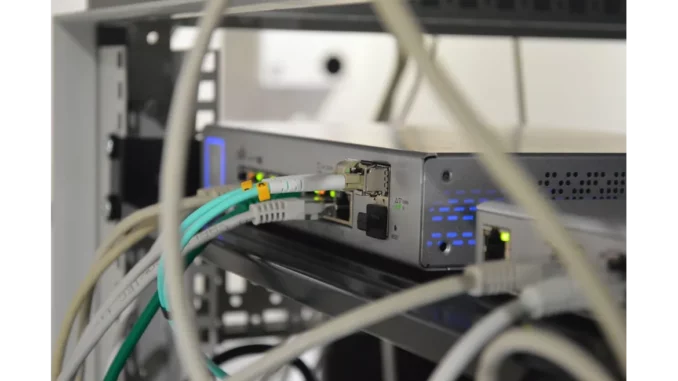
In the ever-evolving world of data storage solutions, choosing the right Network Attached Storage (NAS) can be a daunting task, especially when faced with the choice between established giants and promising newcomers. Recently, I had the chance to sit down with Sarah Winslow, a network administrator who has been navigating the NAS landscape for her mid-sized company. Our conversation shed light on the choices between QNAP and UniFi’s new UNAS Pro, guided by the ongoing efforts of Eddie at NASCompares to develop tools for making these decisions easier.
Sarah has been following Eddie’s work for some time. “Eddie’s tools are a godsend,” she noted. “They help demystify the technical jargon and break down the specs into understandable chunks, which is invaluable when you’re trying to match storage solutions to specific needs.”
The Contenders: QNAP and UniFi
QNAP is a name synonymous with NAS, known for its broad range of devices and robust software offerings. Sarah has been using QNAP systems for years, appreciating their flexibility and expandability. “The TS-464 is a solid piece of kit,” she said, “with its Intel Celeron processor and support for PCIe upgrades. It’s been great for our office, where we need reliable performance and the ability to scale up.”
On the other hand, UniFi, under Ubiquiti, has recently stepped into the NAS market with the UNAS Pro. Priced aggressively at $499, the UNAS Pro aims to attract those already invested in the UniFi ecosystem. “The price point is attractive,” Sarah admitted, “especially when you consider the built-in 10GbE networking. It’s a tempting choice for small businesses or home offices.”
Hardware and Value for Money
When it comes to hardware, the comparison becomes a bit more nuanced. QNAP offers a wider range of options, from entry-level models to enterprise-grade systems, whereas UniFi’s UNAS Pro focuses on delivering a cost-effective, integrated solution. “QNAP’s expandability is a huge advantage,” Sarah pointed out, “but if you’re just getting started or don’t need all the bells and whistles, UniFi’s simplicity can be appealing.”
The hardware specs of the UniFi UNAS Pro—featuring an ARM Cortex-A57 processor and 8GB of non-upgradable RAM—make it a strong contender for straightforward storage needs. However, Sarah stressed the importance of considering future needs: “With QNAP, you have the option to add more RAM or PCIe expansions, which can be crucial as your data storage demands grow.”
Software and User Experience
The software interface is another critical factor. Sarah highlighted how QNAP’s QTS offers a more graphical and feature-rich experience. “For someone who’s not a full-time IT expert, QNAP’s desktop-like interface with drag-and-drop functionality makes things intuitive,” she explained. “Plus, there’s a huge app ecosystem to explore.”
Conversely, UniFi’s UNAS OS is more minimalist, closely aligning with UniFi’s broader networking products. “It’s straightforward and works well if you’re already familiar with UniFi,” Sarah said. “But it lacks the depth and customisation options of QNAP’s QTS.”
Security and Integration
Security is paramount in data storage, and both QNAP and UniFi have their strengths. “QNAP offers comprehensive, device-level security features,” Sarah noted, “which is reassuring for businesses where data protection is a priority.” UniFi integrates its NAS security with its networking tools, providing a unified approach for businesses already using UniFi’s ecosystem.
The Decision
When asked about the decision between the two, Sarah was thoughtful. “It really comes down to what you need. If you’re looking for a NAS with extensive features and future-proofing, QNAP is the way to go. But if simplicity, integration with existing UniFi equipment, and price are more important, then UniFi’s UNAS Pro is a solid choice.”
Sarah’s insights underscore the value of having access to tools and resources like those provided by NASCompares. “Having someone like Eddie constantly developing these tools helps a lot,” she concluded. “It’s all about understanding what you need today and anticipating what you might need tomorrow.”
In the end, the choice between QNAP and UniFi’s UNAS Pro is not just about specs and price—it’s about aligning those factors with your specific requirements and future plans. Both offer unique advantages, and with the right guidance, you can find the perfect fit for your data storage needs.
Chuck Derricks

